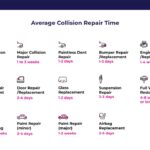Falling behind on your car payments can be stressful, especially when you face the threat of repossession. It’s crucial to understand when do they repo your car and what steps you can take to potentially avoid it. This guide provides essential information to help you navigate the complexities of car repossession and protect your vehicle.
Understanding the Triggers for Repossession
Lenders don’t want to repossess your car, but they will if necessary to recover their losses. So, when do they repo your car? The most common trigger is missing payments. Here’s a breakdown:
- Late Payment: The repossession process can begin as soon as you miss a payment and default on your loan agreement. While policies vary, many lenders consider you in default if you are even one day late.
- Defaulting on Your Contract: Default isn’t just about late payments. It can also occur if you violate other terms of your loan agreement, such as failing to maintain adequate car insurance. Lapses in insurance coverage are a red flag for lenders, as it puts their collateral (your car) at risk.
It’s important to remember that the specific terms outlining default and repossession will be detailed in your car loan contract. Review this document carefully to understand your lender’s policies.
The Repossession Process: What to Expect
One of the most unsettling aspects of repossession is the potential for it to happen without much warning. Many people wonder, “when do they repo your car will I get a notice?”. In many jurisdictions, the answer is often no, you are not entitled to advance notice before repossession.
- No Advance Warning: Creditors are generally not legally obligated to warn you before repossessing your vehicle. They can seize the car as soon as you are in default according to your loan agreement.
- “Breach of the Peace”: While they can come onto your property to repossess the vehicle, they cannot cause a “breach of the peace.” This generally means they can’t use physical force, threats, or break into a locked garage to take your car. However, the definition of “breach of the peace” can be subjective and vary by location.
Voluntary Repossession: An Alternative
If you know you can no longer afford your car payments, you might consider voluntary repossession. This is when do they repo your car and you cooperate by returning it yourself.
- Returning the Vehicle: Voluntary repossession involves willingly returning the car to your lender. While it still negatively impacts your credit report, it might be seen slightly more favorably than a forced repossession.
- Responsibility Remains: Even with voluntary repossession, you are still responsible for the outstanding loan balance, including fees and repossession costs.
After Repossession: Regaining Your Vehicle and Understanding Your Financial Obligations
Once your car has been repossessed, you have limited time to act if you want to get it back. Understanding your options is key after when do they repo your car occurs.
- Paying to Reinstate or Redeem: To get your car back, your lender will likely require you to pay the past-due payments, repossession costs, and potentially the full outstanding loan balance. “Reinstatement” means catching up on missed payments, while “redemption” involves paying off the entire loan.
- Vehicle Sale and Deficiency Balance: If you cannot afford to reinstate or redeem your vehicle, the lender will sell it, usually through a public auction or private sale. They are required to notify you about the sale, especially a public sale, so you have the chance to be present. After the sale, if the sale price doesn’t cover your loan balance and repossession expenses, you will be responsible for the “deficiency balance” – the remaining amount owed. Conversely, if the sale generates more than what you owe, the lender must return the surplus to you.
Preventing Repossession: Proactive Steps
The best way to deal with repossession is to prevent it from happening in the first place. If you foresee financial difficulties, proactive communication is essential.
- Contact Your Lender Immediately: If you anticipate being late on a payment, contact your lender as soon as possible. Many lenders are willing to work with borrowers to create modified payment plans or temporary solutions to avoid repossession.
- Get Agreements in Writing: If your lender agrees to any changes in your payment arrangement, ensure you receive written confirmation. Without written proof, the original loan terms remain in effect.
In conclusion, understanding when do they repo your car involves knowing your loan agreement, being aware of default triggers, and recognizing your rights and options throughout the repossession process. Proactive communication with your lender is the most effective strategy to prevent repossession and protect your financial well-being.

